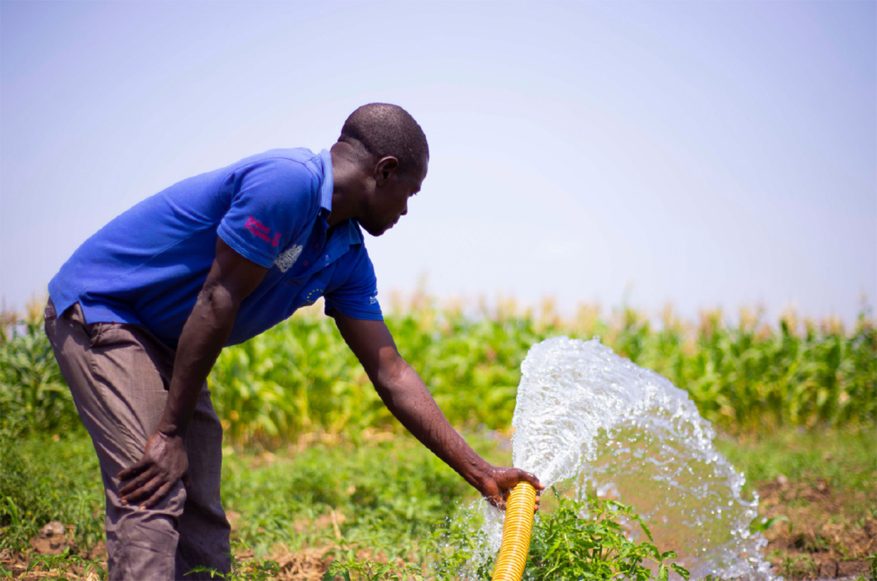Every morning before he leaves for his work, smallholder farmer Ephraim Kamtedza, from Malawi, prays for guidance. The 48-year-old’s green field, just visible from his home, is evidence of the hard work he puts into growing food year-round for his six children.
Ephraim is a smallholder farmer participating in programmes we support – including improving community access to village savings loans (VSL) groups and growing nutritious and high yield orange fleshed sweet potato. In Balaka district, where he lives, climate change has caused erratic rain so irrigation farming is essential to grow crops like the orange fleshed sweet potato sustainably. However, most farmers lack the resources needed to purchase farming inputs and the necessary irrigation technology.
“At first I used to hire a pump to help with irrigation,” he explained. “For the crops to mature, I needed to irrigate seven times. This was expensive and time-consuming.”
In 2020, Ephraim bought a motorised water pump using his village savings loan and profits from selling orange fleshed sweet potato. The purchase has since saved him thousands in leasing fees per farming season. He also used a village loan to buy five 50kg bags of rice when Tropical Storm Ana hit in January 2022. Ephraim’s profits from selling that rice went back into his farming, providing additional income to support his family during a particularly difficult period.
A member of the VSL group for two years, Ephraim received training in VSL leadership, group dynamics, borrowing and loan management. He is now a VSL community-based trainer, overseeing five local groups with around 100 members.
“The food we farmed used to run out by November, forcing us to buy food until February,” he said. “Purchasing food was inconsistent as my income was unstable, meaning our family struggled to eat at times. Now, we’ve not only learnt how to grow orange fleshed sweet potato, but we’ve been able to sell and make profits from it and invest that money in so many ways. Targeting 4000 smallholder farmers in Balaka, the project aims to increase farmer incomes through increased and diversified agricultural production, increased food security, and better market access.


